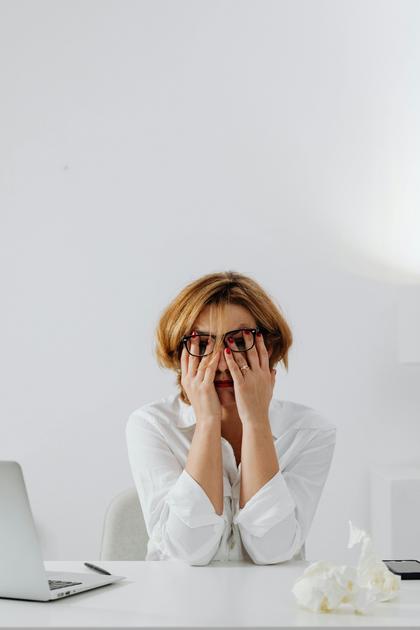If you’re a woman over 30 struggling with sleepless nights, you are not alone. Many women face challenges like insomnia, fatigue, and hormonal imbalances as they navigate this stage of life. In recent years, melatonin has emerged as a popular solution for promoting better sleep. However, is melatonin truly the right choice for you? Let’s delve into the experiences of women just like you, seeking restful sleep without heavy medications.
Understanding Sleep Challenges for Women Over 30
As women reach their 30s and beyond, sleep patterns can shift dramatically. The hustle of daily life, coupled with responsibilities, can lead to sleep challenges that many women silently contend with. It’s not uncommon to experience trouble falling asleep, waking frequently during the night, or feeling unrested upon waking. These issues are often linked to hormonal changes, stress levels, and lifestyle factors.
What is Melatonin and How Does It Work?
Melatonin is a hormone produced by the pineal gland in the brain, primarily responsible for regulating sleep-wake cycles. As it gets dark outside, melatonin levels rise, signaling to your body that it’s time to rest. When it’s light, melatonin levels drop, waking you up. For women over 30, melatonin production can decrease, contributing to those restless nights.
The Benefits of Melatonin for Better Sleep
Melatonin supplements can be a helpful option for those struggling with sleep. Some benefits include:
- Improved Sleep Quality: Melatonin can help regulate the sleep cycle, enabling deeper, more restorative sleep.
- Shorter Time to Fall Asleep: Many women find that melatonin helps them drift off faster than they would without it.
- Less Daytime Sleepiness: By improving sleep quality, melatonin can help reduce feelings of grogginess and fatigue during the day.
- Natural Approach: Melatonin is a naturally occurring hormone, offering a more natural option compared to some sleeping pills.
Potential Side Effects of Melatonin
While melatonin is generally considered safe for short-term use, it’s important to be aware of possible side effects, which can include:
- Dizziness: Some users report feeling lightheaded after taking melatonin.
- Daytime Drowsiness: Although it helps with nighttime sleep, some may feel sleepy the following day.
- Example of Hormonal Effects: Since melatonin is a hormone, it can affect hormonal balance in your body.
Natural Alternatives to Melatonin
If melatonin doesn’t seem like the right fit for you, consider these natural alternatives:
- Herbal Teas: Chamomile and valerian root are known for their calming properties and can aid relaxation before bedtime.
- Exercise: Regular physical activity can help regulate sleep patterns and improve sleep quality.
- Meditation: Mindfulness practice can reduce stress and promote relaxation, setting the stage for better sleep.
Creating a Sleep-Friendly Environment
Your bedroom should be a sanctuary for sleep. Here are some tips:
- Darkness: Use blackout curtains to block out light that can disrupt sleep.
- Temperature: Keep your bedroom cool; the ideal temperature for sleep is typically between 60-67°F (15-19°C).
- Noise Control: Consider white noise machines or earplugs to minimize disruptive sounds.
Importance of Sleep Hygiene
Good sleep hygiene is essential for improving sleep quality. This includes:
- Consistent Sleep Schedule: Going to bed and waking up at the same time every day helps regulate your body’s clock.
- Limit Screens Before Bed: The blue light emitted by devices can hinder melatonin production. Aim to turn off electronics at least an hour before bedtime.
- Avoid Stimulants: Cut back on caffeine and nicotine, especially in the hours leading up to sleep.
How Stress Affects Sleep Quality
Stress is a significant factor that can rob you of restorative sleep. When the mind is racing, it can be challenging to relax enough to fall asleep. Recognizing stress triggers and finding ways to manage them is crucial. Techniques can include:
- Journaling: Writing down thoughts and worries can help clear your mind before bed.
- Breathwork: Deep breathing exercises can ease tension and promote relaxation.
- Scheduled Relaxation: Set aside time each day to engage in calming activities.
Hormonal Changes and Sleep Disruption
As women age, hormonal fluctuations during menstrual cycles, pregnancy, and menopause can disrupt sleep patterns. It’s important to be aware of these changes and adapt your routines accordingly. Some common hormonal disruptions include:
- Menopause Symptoms: Hot flashes and night sweats can significantly affect sleep quality.
- Menstrual Irregularities: PMS symptoms can lead to anxiety and discomfort, making sleep elusive.
A Step-by-Step Guide to Better Sleep
Getting your sleep back on track is entirely possible. Here’s a simple guide to follow:
- Evaluate Your Sleep Environment: Make necessary changes in your bedroom to promote restfulness.
- Build a Nighttime Routine: Establish calming pre-sleep rituals, such as reading or taking a warm bath.
- Consider Natural Remedies: Explore herbal supplements or relaxation techniques to find what works for you.
- Connect with Others: Sharing experiences with friends or support groups can provide emotional relief and insights.
Many women are finding success by exploring these options and tailoring their approach to sleep needs. See how many women are solving their sleep issues without heavy medications.
Sleep disruption can feel overwhelming, but remember, change is possible. By taking small steps and seeking support, you can reclaim restful nights. You are not alone, and many have walked this path before you. There is hope and healing awaiting. Together, let’s make every night a better one.







